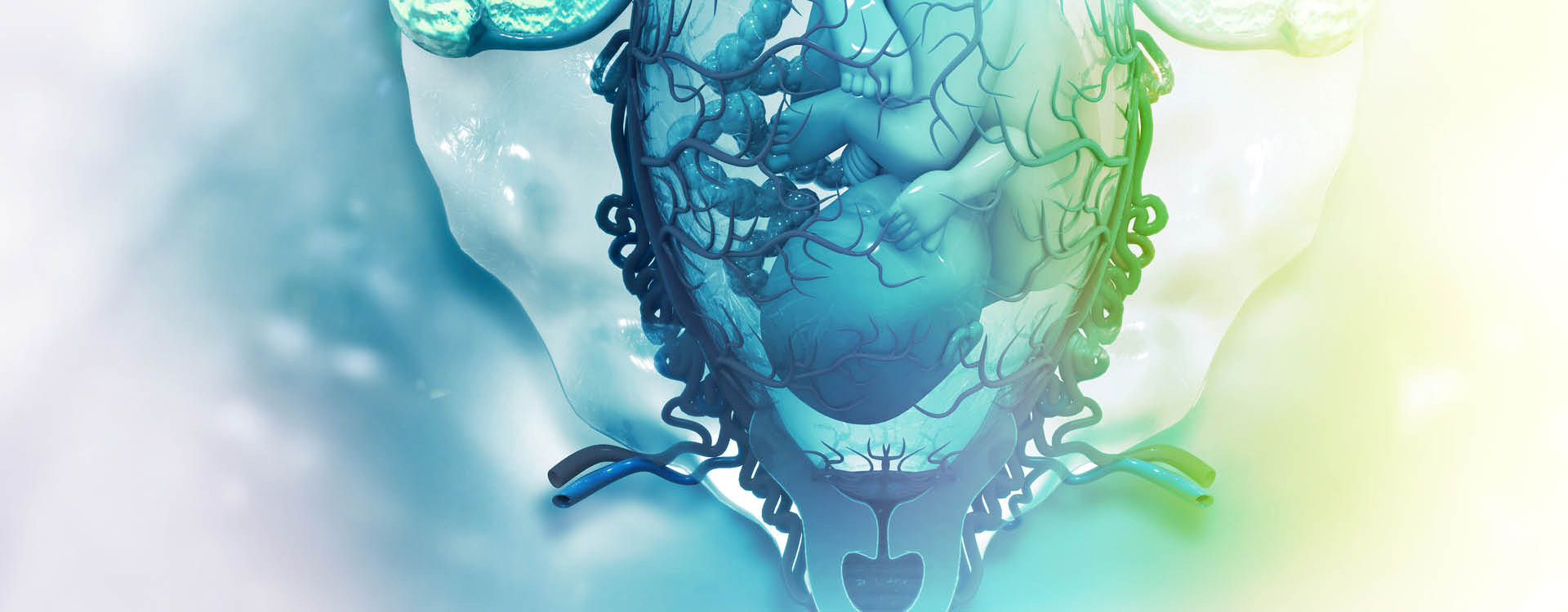Most people associate pregnancy with things like morning sickness, cravings, and feeling hot all the time — but what if you’re suddenly bundling up in sweaters while everyone else is in t-shirts? If you’ve found yourself Googling “why am I so cold while pregnant?”, you’re definitely not alone.
While it’s not as common as other symptoms, feeling cold during pregnancy does happen. For some, it shows up early — almost like the body hasn’t caught up to the news of being pregnant. For others, it’s a persistent chill that just doesn’t seem to match the weather (or their partner’s thermostat wars) [*].
So, what’s behind the goosebumps and cold feet? In this guide, we’ll walk you through what might be causing those chills, how it can vary by trimester, and when it’s worth checking in with your provider. Let’s break it down — no need to suffer in silence (or sweaters).
Is Being Cold a Sign of Pregnancy?
Feeling cold isn’t one of the classic signs of early pregnancy — like nausea, fatigue, or breast tenderness — but some people do report chills or feeling unusually cold during the first trimester [*]. While not a primary pregnancy indicator, it can still happen due to hormonal and metabolic changes.
Though less talked about, some women notice a sudden chilliness as their body begins adjusting to the pregnancy. This sensation is typically harmless and tied to internal shifts in blood volume, hormones, and metabolism [*]. That said, it’s always smart to pay attention to your body and speak up if something feels off.
Is It Normal to Be Cold During Pregnancy?
Yes, feeling cold during pregnancy can be normal, especially during the early weeks [*]. However, it’s far less common than feeling hot, which is what most pregnant people report. Still, a persistent chill or frequent cold spells shouldn’t be ignored, particularly if it’s accompanied by other symptoms like fatigue, dizziness, or shortness of breath [*].
Pregnancy causes your body to undergo dramatic physiological changes: blood production ramps up, hormone levels surge, and your metabolism speeds up. All of these can affect how your body regulates temperature. If your body is still adjusting to these changes, temporary feelings of coldness might occur [*].
Why Am I So Cold During Pregnancy?
Hormonal shifts and metabolic demands are usually the root cause. Progesterone, the pregnancy hormone, increases your body’s baseline temperature, but some people may still feel cold due to how their individual body reacts [*]. Other possible reasons include thyroid fluctuations, blood circulation changes, low iron levels, or dehydration [*].
Let’s break down the possible causes and what to look out for, especially in each trimester.
First Trimester (Weeks 1 - 12)
The first trimester is when many people first report feeling colder than usual. Why? Hormones.
Your body is rapidly increasing levels of human chorionic gonadotropin (hCG), progesterone, and estrogen. These hormones can affect your circulatory system and core body temperature, sometimes leading to chills — even if your actual temperature isn’t low [*].
Additionally, your metabolism starts to ramp up, and your body may struggle to keep up with the new energy demands, leaving you feeling tired and cold. Early fatigue and nausea can also lead to under-eating, which in turn can lower your energy and temperature [*].
Some women also experience cold feet or hands in the first trimester due to changes in blood pressure or blood vessel constriction [*].
Second Trimester (Weeks 13 - 27)
By the second trimester, your body usually adapts to its new hormonal state, and you’re less likely to feel cold. Most people report feeling warmer at this stage, thanks to increased blood volume and the baby’s continued growth [*].
However, if you’re still feeling chilled, it may be a sign of something else, like low iron (anemia), a thyroid imbalance, or even an oncoming illness [*]. It’s a good idea to bring this up with your provider, especially if the cold sensation is ongoing or gets worse.
Third Trimester (Weeks 28 - 40)
Chills in the third trimester are less common but can happen, especially if you’re dealing with conditions like preeclampsia, gestational anemia, or thyroid disorders [*][*][*].The baby’s size and position can also impact circulation, occasionally causing cold feet or legs.
If you experience chills along with swelling, headaches, or vision changes, call your doctor right away as these could be signs of a serious condition like preeclampsia.
Medical Reasons You May Be Cold During Pregnancy
While occasional chills may just be your body adjusting to new hormones, consistent coldness might be your body’s way of signaling something deeper. Let’s take a closer look at the most common medical reasons behind feeling cold during pregnancy, and what each one could mean.
1. Iron-Deficiency Anemia
This is one of the most common reasons pregnant people feel cold. Your body needs iron to make hemoglobin, a protein in red blood cells that carries oxygen to your tissues [*]. During pregnancy, your blood volume increases dramatically, which means your body needs even more iron than usual [*].
When iron levels drop, your tissues receive less oxygen, which can leave you feeling chilled, sluggish, or lightheaded [*]. Other signs of anemia include pale skin, shortness of breath, and rapid heartbeat. It’s often discovered during routine prenatal blood work, and treatment may include dietary changes or iron supplements as recommended by your provider [*].
2. Hypothyroidism
An underactive thyroid can significantly affect how your body regulates temperature. The thyroid gland controls your metabolism, and when it’s underperforming, it slows everything down - including your ability to stay warm [*].
Hypothyroidism during pregnancy can also contribute to fatigue, constipation, dry skin, and weight gain [*]. It’s typically diagnosed with a blood test (TSH levels) and is treatable with medication that helps normalize your thyroid hormone levels [*].
3. Poor Circulation
Cold hands, feet, and even legs can sometimes result from poor blood circulation. As your uterus grows, it can put pressure on major blood vessels, like the inferior vena cava, that return blood from your lower body [*][*]. This compression slows circulation and makes it harder for warm, oxygen-rich blood to reach your extremities [*]
You might especially notice this when sitting or lying in one position for a long time, which is why changing positions, elevating your legs, or gentle movement can help improve blood flow.
4. Dehydration
Water is essential for regulating body temperature, and it’s easy to become dehydrated during pregnancy — especially if you’re experiencing morning sickness or simply forgetting to drink enough.
Even mild dehydration can throw off your internal thermostat. You might also feel lightheaded, have dark urine, or develop a dry mouth. Aim for 8 to 12 cups of water daily, and add electrolytes if you’re sweating or vomiting frequently [*].
5. Infections
When your body is fighting an infection, one of its first defense mechanisms is raising your internal temperature to kill off pathogens [*]. This can sometimes lead to chills or shivering as your body tries to generate heat before a fever develops [*].
Common culprits during pregnancy include urinary tract infections (UTIs), the flu, or even a mild cold [*]. If you’re feeling cold alongside symptoms like fever, body aches, or nausea, it’s best to reach out to your provider promptly.
6. Gestational Diabetes
Although chills aren’t a hallmark symptom of gestational diabetes, unstable blood sugar levels can affect circulation and nerve sensitivity, leading to tingling or cold sensations in your hands or feet [*][*].
This condition usually develops around the second or third trimester and is diagnosed through a glucose screening test [*]. If left unmanaged, it can lead to complications for both you and your baby so early detection and treatment are key [*].
How to Combat Feeling Cold While Pregnant
You don’t need to spend your pregnancy buried under blankets or constantly adjusting the thermostat. Here are expanded and practical ways to stay warm, support your health, and feel more comfortable through all three trimesters.
1. Layer Up Thoughtfully
Choose breathable, comfortable layers you can easily remove or add throughout the day. Thermal socks, soft scarves, and maternity-friendly sweaters are excellent additions. You might also consider fingerless gloves if your hands are especially cold while working or typing.
For nighttime comfort, invest in a heated blanket with auto-shutoff or a safe heating pad — especially if you’re dealing with cold legs or lower back discomfort.
2. Eat Iron-Rich Foods
Incorporate foods that support healthy blood production and energy. Top iron-rich foods include [*]:
- Lean red meats
- Poultry
- Lentils and beans
- Dark leafy greens like spinach and kale
- Iron-fortified whole grains and cereals
Don’t forget the vitamin C — think strawberries, oranges, bell peppers — which helps your body absorb plant-based iron more effectively [*]. If your provider recommends iron supplements, take them with food to reduce nausea and increase absorption [*].
3. Stay Hydrated
Water doesn’t just help maintain temperature — it’s crucial for supporting increased blood volume, flushing toxins, and preventing common pregnancy discomforts like constipation and swelling [*].
Keep a large, insulated water bottle with you throughout the day. If plain water isn’t appealing, try infusing it with lemon, mint, or cucumber. Warm herbal teas like ginger, rooibos, or lemon balm can also help you hydrate and warm up.
4. Get Moving
Even light movement boosts circulation, warms your muscles, and helps regulate body temperature. Some great options include [*].
- A brisk 10 to 20 minute walk
- Prenatal yoga or stretching
- Gentle resistance band exercises
Not only will this warm you up, but it also supports mental health, reduces swelling, and improves sleep. Always check with your doctor before starting a new workout routine.
5. Check Your Thyroid and Iron Levels
If you’re frequently cold despite staying active, eating well, and dressing warmly, it might be time for a blood test. Your provider can check [*]:
- Thyroid-stimulating hormone (TSH)
- Free T3 and T4
- Hemoglobin and hematocrit
- Ferritin (iron storage levels)
Catching a deficiency early makes a big difference in how you feel day to day, and in your long-term health during pregnancy.
6. Warm, Nourishing Meals
What you eat can have a direct impact on how you feel. Warm meals like soups, stews, oatmeal, roasted vegetables, and hot grain bowls not only support digestion but can boost your internal temperature.
Try slow-cooked meals with warming spices like cinnamon, turmeric, and ginger. These ingredients are naturally anti-inflammatory and cozy — plus, they support digestion and immune health during pregnancy.
When to Contact Your Doctor
Reach out to your healthcare provider if [*]:
- You’re constantly feeling cold, even in warm settings.
- You experience chills with a fever or flu-like symptoms.
- You feel cold and extremely tired, weak, or dizzy.
- You notice cold hands/feet paired with swelling or vision issues.
- You suspect your iron or thyroid levels may be off.
A few chilly evenings are likely nothing to worry about, but your care provider can rule out more serious concerns and offer treatment if needed.
The Bottom Line
While it’s not the most common pregnancy symptom, feeling cold — especially in the early weeks — is usually harmless and related to the whirlwind of changes happening inside your body. Hormones, metabolism, blood flow, and even your thyroid or iron levels can all play a role.
But if the chill sticks around, gets worse, or comes with other symptoms, don’t brush it off. Always listen to your body, and don’t hesitate to bring your concerns to your provider.
About MiracleCord
Pregnancy is full of unexpected changes, like suddenly feeling cold for no clear reason. At MiracleCord, we know how overwhelming it can be to navigate all the new symptoms, decisions, and questions that come with this journey. That’s why we’re here: to provide trusted information now, and long-term protection for your baby’s future.
Cord blood banking might not be the first thing on your mind when you're trying to stay warm and healthy, but it’s one of the most important steps you can take for your family. Umbilical cord blood is rich in powerful stem cells that can be used to treat nearly 80 life-threatening conditions, and saving it with a leading, accredited provider like MiracleCord ensures you’re ready for whatever tomorrow brings.
Our team is committed to delivering industry-leading technology, transparent pricing, and compassionate service so you can focus on what matters most – growing your family, one cozy step at a time.
Request a free Cord Blood Banking Kit to get started.
DISCLAIMER: THE INFORMATION ON THIS WEBSITE IS NOT INTENDED TO BE USED AS MEDICAL ADVICE.The materials and information contained on the MiracleCord website is provided for educational and informational purposes only, and is not intended to, and does not constitute, medical or other health advice or diagnosis, and should not be used as such. You should not use this information to diagnose or treat a health problem or disease. If you are seeking personal medical advice, you should consult with a licensed physician. Always consult with a qualified health care provider regarding a medical condition.




